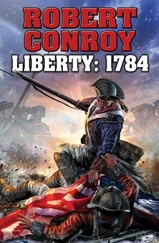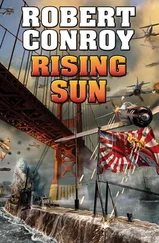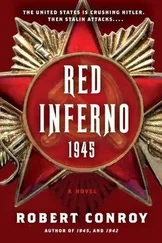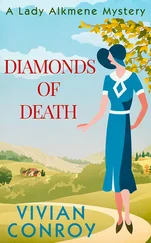Robert Conroy - 1862
Здесь есть возможность читать онлайн «Robert Conroy - 1862» весь текст электронной книги совершенно бесплатно (целиком полную версию без сокращений). В некоторых случаях можно слушать аудио, скачать через торрент в формате fb2 и присутствует краткое содержание. Жанр: Альтернативная история, на английском языке. Описание произведения, (предисловие) а так же отзывы посетителей доступны на портале библиотеки ЛибКат.
- Название:1862
- Автор:
- Жанр:
- Год:неизвестен
- ISBN:нет данных
- Рейтинг книги:5 / 5. Голосов: 1
-
Избранное:Добавить в избранное
- Отзывы:
-
Ваша оценка:
- 100
- 1
- 2
- 3
- 4
- 5
1862: краткое содержание, описание и аннотация
Предлагаем к чтению аннотацию, описание, краткое содержание или предисловие (зависит от того, что написал сам автор книги «1862»). Если вы не нашли необходимую информацию о книге — напишите в комментариях, мы постараемся отыскать её.
1862 — читать онлайн бесплатно полную книгу (весь текст) целиком
Ниже представлен текст книги, разбитый по страницам. Система сохранения места последней прочитанной страницы, позволяет с удобством читать онлайн бесплатно книгу «1862», без необходимости каждый раз заново искать на чём Вы остановились. Поставьте закладку, и сможете в любой момент перейти на страницу, на которой закончили чтение.
Интервал:
Закладка:
“I hope you fared better than I did,” Scott grumped. “The sandwich was dry. Sergeant Fromm made it for me since Bridget had the evening off. Fromm should stick to guarding me and answering the door.”
Nathan grinned. His earlier suspicions about the man who had opened the door had been correct. The man was a retired soldier who was devoted to Scott. Bridget was the young Irish woman who cooked and kept house. Nathan thought it amusing that the old man had been waiting up for him as if he were a child. “Let's say the food was adequate, General, but still superior to the wine.”
Scott shook his head sadly. “It's a long way from France to here, and wines do not always travel well. A pity we don't make any of our own that compares. Of course, I would not have expected the French to present their finest for uncouth Americans to guzzle.”
Nathan sat down across from Scott. “Has anyone ever compared you to Falstaff, General?”
Scott glowered at him. “I know my Shakespeare. Falstaff was a fool, and I am not a fool. Enough small talk; tell me what transpired. Did you get the message to John Hay?”
Nathan had gotten to the salon a little past the appointed time. John Hay had already arrived and was surrounded by people who wished to use him to gain influence with President Lincoln.
“I had to wait until he was alone. Then I gave him the envelope and told him it was a confidential message from you to Mr. Lincoln. He looked surprised, but recovered quickly and put it in an inside coat pocket. I must say I was impressed by Hay. He seemed very poised and confident. He just continued our polite conversation as if nothing had happened.”
“Then what?”
“Then I mingled and socialized.”
“Anyone important there?”
“Aside from some congressmen, only Generals Meigs and McDowell.” Meigs was the army's quartermaster general, while McDowell, the loser at Bull Run, was in charge of the defenses of Washington. “Neither man stayed long. Poor McDowell looked like a whipped dog.”
“Nobody likes McDowell because McDowell likes nobody,” Scott said. “All the man likes to do is eat. I consider myself a gourmet. He is a glutton. It's amazing he doesn't weigh as much as I do. General Meigs is an unpleasant man as well, but honest and capable.”
For the rest of the evening, Nathan had concentrated on socializing and enjoying himself. “I had a pleasant conversation with our host and hostess, the D'Estaings. Madame D'Estaing is quite charming and attractive. I had the distinct feeling she was quite a liberal woman.”
“That would be putting it mildly,” Scott said wryly. “She is at the center of many rumors. If only half are true, she leads a very interesting life. Her husband, Henri, has parlayed a distant relationship to the French general who succored us during our revolution into a position of a buyer for France.”
“What does he buy?”
“Congressmen,” Scott answered. “Henri D'Estaing may look like a plump little piece of pastry, but he is quite efficient at what he does. France has designs on Mexico, and it is in their interest to keep us from protesting their involvement too vehemently.”
Interesting, Nathan thought. “Valerie, I mean Madame D'Estaing, was with an American woman who was dressed in black, a Mrs. Devon. I presume she is a widow.”
Scott thought for a moment. “She is Mrs. Rebecca Devon. Her husband was an administrator in the War Department until he marched off to save his nation and was killed at Bull Run. I had met both of them. She's a very pleasant and intelligent woman, and reasonably attractive if you like them that thin and can ignore that scar on her neck that she tries to conceal. She was very much pro abolition and in favor of war to stop secession and free the slaves. Sadly, like so many other people, her wishes came true and contained within them the seeds of tragedy.”
“And her late husband?” Nathan asked, curiously.
“Never speak ill of the dead. Before the battle there were rumors of corruption. He was a crony of Cameron's and heartily disliked by Meigs.”
Nathan had thought Mrs. Devon to be almost gaunt, not thin. However, the sudden loss of her husband might have contributed to that state. He hadn't noticed any scar, but she had been wearing a high-necked dress. “Mrs. Devon struck me as being almost puritanical in comparison with Madame D'Estaing, yet they seemed to be friends. It struck me as a strange combination.”
“There is no such thing as a strange friendship in this city, Nathan. That is something else you will realize before long.”
“I also met a Captain John Knollys of the British army who is now an attache at the British embassy. He was hanging on Madame D'Estaing like he was afraid she would run away. Captain Knollys did not wear his uniform. He informed me that he was afraid he'd be lynched if he walked down the street with it.”
“He might be right,” Scott said.
“He also said that the British embassy is packed up and ready to leave with very short notice. He, too, feels that war is imminent. He said that Lord Lyons is virtually distraught at the prospect. Knollys seemed like a pleasant sort. It's a shame he will be our enemy. Of course, I say that about friends who've sworn allegiance to the South.”
They talked for some time about others at the reception. It was evident to Nathan that General Scott missed being the center of attention, or at least near the center.
Scott had served fifteen presidents in his long lifetime. He had first risen to prominence in the War of 1812, and later had conquered Mexico in that unfortunate War of 1845. His campaign into Mexico City was considered by many military experts to be a tactical masterpiece. Nathan thought that to be retired and unable to lead in this greatest of American wars by virtue of his age must gall him terribly.
Nathan changed the subject. He talked about all the others who were at the salon, such as the musicians who tried and failed to play in the background, and of the hundred or so who had been in attendance.
“That will probably be the last of these sorts of social occasions,” Scott mused. “If war with England does come, the French will try very hard not to draw attention to themselves because of the Mexican situation, and they are the only ones interested in perpetuating Washington's social whirls. The Lincolns will do no unnecessary socializing. Mr. Lincoln will defer to his wife, who is terrified of those sorts of events. I'm afraid there'll only be formal receptions from now on, and, God knows, they aren't very pleasant at all.”
“What will happen now,” Nathan asked, “regarding your note to Mr. Lincoln?”
“As I said before, we wait on both England and Mr. Lincoln. I am confident that the president will contact me, if only out of courtesy tinged with curiosity. I am just as confident that we will be at war with England when that time comes.”
Viscount Lord Palmerston, prime minister of England, was quickly relearning an unpleasant truth regarding warfare in the nineteenth century. Specifically, it was much easier to declare war than to wage it.
The Royal Navy was in relatively good shape and perfectly capable of overwhelming the far smaller and less modern Union navy. Even though there were more than three hundred vessels listed by British intelligence as warships in the U.S. Navy, the vast majority were converted civilian craft that had been renamed, had a cannon or two mounted on them, and then been sent on to blockade Charleston, New Orleans, Mobile, and other Southern ports. The fact of their existence could easily be dismissed.
The only warships of note in the Union fleet were a dozen or so new steam sloops of war. The Union would likely use these as commerce raiders. This was a concern, as American raiders had made life miserable for British commerce in both the Revolution and the War of 1812. Royal Navy ships would have to be detached to hunt them down, and British ships could not make the same mistake as the navy did in 1812. The American sloops would be fierce combatants and likely win in battles with ships their own size. Thus, they must be overwhelmed and not dueled.
Читать дальшеИнтервал:
Закладка:
Похожие книги на «1862»
Представляем Вашему вниманию похожие книги на «1862» списком для выбора. Мы отобрали схожую по названию и смыслу литературу в надежде предоставить читателям больше вариантов отыскать новые, интересные, ещё непрочитанные произведения.
Обсуждение, отзывы о книге «1862» и просто собственные мнения читателей. Оставьте ваши комментарии, напишите, что Вы думаете о произведении, его смысле или главных героях. Укажите что конкретно понравилось, а что нет, и почему Вы так считаете.












